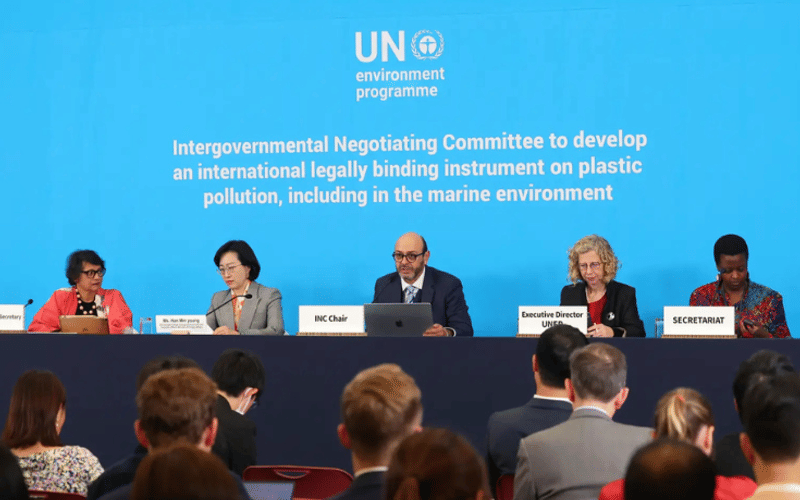10 things to take away from the Busan Treaty, 2024
As plastic pollution grows relentlessly and waste management falls short, the much anticipated fifth meeting of the Intergovernmental Negotiating Committee in Busan, Korea, ended on 1 December 2024 without delivering a treaty to handle the worldwide plastic pollution crisis.
10 Dec 2024 | By WhatPackaging? Team
1. The treaty sought to create a legally binding framework to address plastic pollution at all stages of its lifecycle: production, use and disposal. Its key goals included decreasing plastic production, banning toxic chemical additives and preventing leakage.
2. Despite intense discussions, the treaty failed to finalise points of agreement. A lack of consensus among member states largely due to resistance from petrochemical-producing nations resulted in the need for another round of negotiations.
3. Countries with strong petrochemical industries such as Saudi Arabia and Kuwait blocked ambitious proposals stating that they would have negative impacts on trade and a great economic impact and instead advocating for weaker smaller scale proposals. These countries emphasise on waste management as the main solution for plastic management.
4. The presence of over 220 fossil fuel and chemical industry lobbyists raised concerns about undue corporate sway of negotiations. Environmental groups criticised this undermining the process and process and prioritising profits over public health and environmental safety.
5. One powerful player on plastic production is the USA. The country has only recently changed its stance to now support production cuts. This is a significant move as the country produces 17% of the world’s plastic, behind only China.
6. Throughout the negotiations, the misuse of scientific evidence became a key issue. Many negotiators selectively cited or distorted scientific findings to support their positions, often ignoring the consensus of the scientific community.
7. The concept of a circular economy emerged as a prominent solution to plastic pollution, involving upcycling plastics rather than relying on a linear model of production and disposal. Several countries spoke about including upcycling targets, the details of which were not mentioned.
8. The outcome of the Busan treaty will have wide effects on the global packaging industry which relies heavily on food, plastics and other consumer goods. As the treaty progresses, businesses may face stricter regulations leading to increased costs for compliance.
9. Microplastics and chemical additives were a key topic at the Busan meeting. A comprehensive plastic treaty is hoped to emerge discussing their use in the systemic framework.
10. Since the countries majorly came to a stalemate, with regard to all serious issues, a meeting is expected to convene in 2025 to discuss the very same issues.


